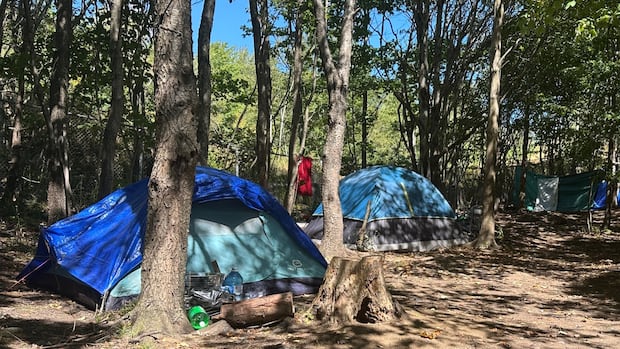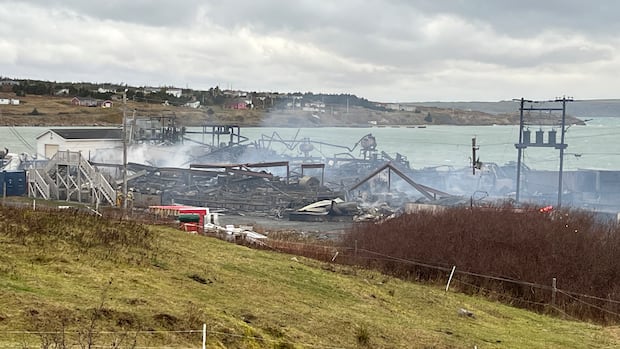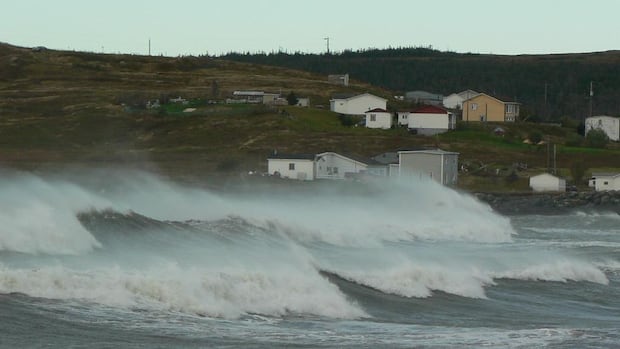As wildfires burn around Nova Scotia and officials caution about the risk of more fires breaking out, community organizations and government departments are trying to get people living in the woods to leave.
Many, however, cannot be convinced.
“There’s reluctance because it is home to some people … that’s their comfort area,” said Matthew Reid, the manager of Souls Harbour Rescue Mission’s mobile outreach program.
Reid’s team of six outreach workers travel around Halifax in vans, connecting with homeless people to offer food, clothing and other resources.
The outreach workers have an exemption from the provincewide ban on entering the woods so they can continue their work, which has taken on a new urgency in recent weeks.
“We try to educate as best we can to let them know that right now it’s not safe to be living in the woods, as the conditions are very dry, and encourage them to find shelter in other places,” Reid said.
Nova Scotia hasn’t had significant rainfall since June, causing widespread drought and setting the stage for wildfires. Fire crews are battling multiple blazes, including one major out-of-control fire that has forced the evacuation of more than one hundred homes.
On Aug. 5, Premier Tim Houston announced a ban on entering the woods, punishable by a $25,000 fine. The same fine applies to having open fires.
At least a dozen fines have been levied, but the province is not yet applying them to homeless people sheltering in forests.
CBC News requested an interview with an official from the Department of Opportunities and Social Development but no one was made available.
“The province’s priority right now is safety and support. Outreach efforts have been successful in encouraging people to relocate without the need for enforcement,” a spokesperson said by email.
More than 100 still sleeping rough
As of Friday, the department said 63 people had relocated from wooded encampments, moving either to a shelter or moving their tents to non-wooded areas.
But many more are still sleeping rough in “high risk” settings — that is, in or near the woods. The latest estimate was 137 people.
Dalhousie Legal Aid lawyer Nadia Shivji said levying fines is discretionary, and she supported the use of that discretion.
“The fact that we haven’t seen any of these cases hopefully shows some compassion.… I think that’s positive,” she said in an interview.
Shivji said the ban should be respected as much as possible, for the sake of public safety. But, she added, the province cannot reasonably enforce it on people who are homeless and living in poverty unless they’re offering “practical alternatives.”
“As of now, we haven’t seen a lot of assistance from the province in addressing the homelessness problem, or a lot of meaningful assistance,” she said.
Shivji said there would be no public interest in issuing a $25,000 fine to someone who has no means to pay it.
“On the flip side, receiving one of those fines for someone in such a vulnerable position can be detrimental to their ability to get back on their feet,” she said.
Shelter beds added
In an email, a Department of Opportunities and Social Development spokesperson described a rapid, concerted effort between multiple provincial departments, municipalities and community groups to relocate people.
They said shelter organizations have opened an extra 125 emergency beds in the past two weeks.
“Our priority is simple – keeping people safe – and we’ve moved quickly to make that happen,” the spokesperson said.

Shivji said the province could take the extreme step of arresting people for breaking the ban on being in the woods, but noted that anyone arrested would have to be quickly released, as the offence would not warrant being detained.
Politicians keep mum
Elected officials have been tight-lipped on the issue of homeless encampments in the woods during the drought.
Last week, a Natural Resources official revealed in a news conference with the premier that the wildfire near Susies Lake in Halifax started with an open fire, made by people. No one was present when fire crews arrived, meaning charges are impossible, the official said.
When a reporter asked whether the fire started at a tent encampment, Houston deflected, saying an investigation will take place “after we get through this.”
“But for right now, the focus is just on containing the fire, fighting the fires, and just kind of reiterating to Nova Scotians that it’s a risky situation and just obey the laws that are in place right now,” Houston said.
Halifax Mayor Andy Fillmore had a similar response when he was asked what options the city is considering for relocating people from the woods.
“It’s a little too soon to get into details,” Fillmore said in an interview on CBC Morning Live.
“I will have more to say about that after a few more conversations with the [provincial housing] minister, but we are looking at a way of getting folks out of danger, and therefore getting us all out of danger by getting them out of the woods,” he said.
Halifax Regional Municipality declined a request for an interview with the city’s manager of housing and homelessness.







